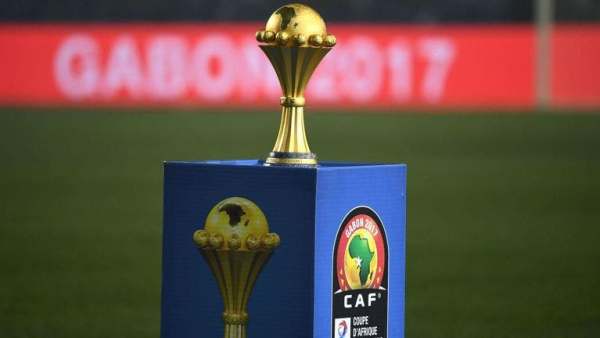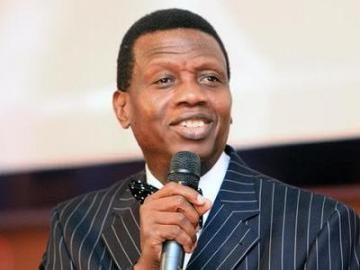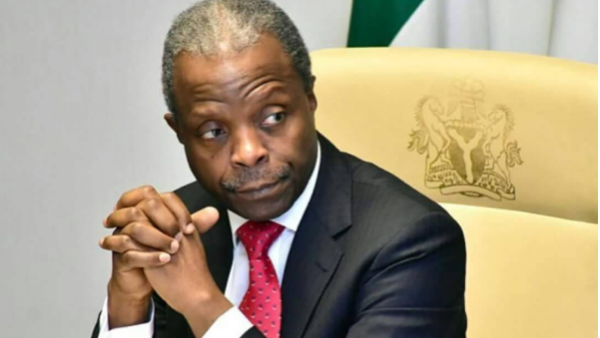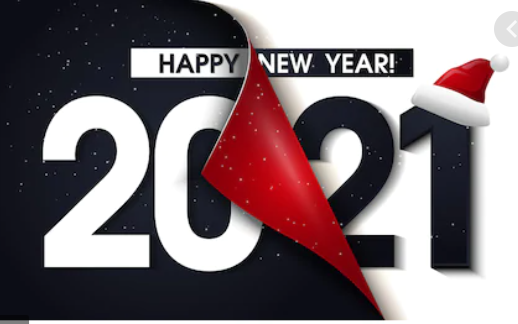We human beings cannot wait to bid the Year 2020 good riddance. The year is leaving behind unpleasant souvenirs, as it is dissolving to yield place to 2021 to mount the saddle. New words, new phrases, new adjectives and new phrasal verbs entered our lexicon in 2020 and within the twinkle of an eyelid gained currency. Everywhere human beings know what is called Coronavirus alias COVID-19. The brutal reign of Mr. COVID-19 has forced school children and students to talk about online classes, Google classroom, about platforms, about computer based test. I am told it is called CBT. There are Zoom conferences. And you hear of virtual meetings. Today we know that the word protocol is not, either in language or practice, a monopoly of the Ministry of Foreign Affairs. It is not an exclusive language of the circle of diplomats or the language of politeness in high government circles. We also know of National Centre for Disease Control, and Isolation Centres, places one would quickly erase from the minds in times past. Every night, people are glued to their television to be informed of the latest by the Federal Task Force on Coronavirus—its spread and control. The word quarantine gave a forlorn image in the past, sparingly used. Now it has taken on a new meaning and impact. We hear of index case; we learn about community transmission. We watch scientists and doctors argue among themselves. Dr. Stella Emmanuel is insisting that Hydroxychloroquine is the cure for coronavirus. Her colleagues in the medical field do not agree! The argument in town currently is about vaccine, its efficacy and its reliability.
As coronavirus has become a bye-word all over the word, there is no compound word, as its bye-product, that has gained currency as facemask, more so in recent times. Everybody today knows what is so called. Not only is it drummed into our ears; our ears are pulled: No “facemask, no entry” warning is pasted at the entrance of most public places, churches and even some homes. In homes of some elite, the guard dogs are close to the gate to either enforce compliance or alert the owner someone is at the gate. If the visitor does not have his facemask on, the house keeper is told not to bother attending to the caller. So serious is the issue of facemask that people were arrested on the street of London for not wearing it. The President of Chile, Sebastian Pinera was fined $3,500 for not wearing a facemask while he posed for a selfie on a beach near his home in the town of Cachagua. Hand washing is another. Everyone is being entreated to cultivate the habit of washing hands in his own interest. It is a new culture for us. Hand washing points dot large premises in several places. Sanitizers become the indispensable accompaniment. There are no hugs, there is no shaking of hands, nor can you in ecstasy embrace a friend or loved one. Social distancing is decreed. There is hardly any text message, email or WhatsApp message you receive that does not end with the admonition: Stay Safe.
Apart from death, the next most dreaded of weapons Mr. COVID-19 brandishes before our sullen gaze is the lockdown as it curtails freedom in nearly all human endeavours—freedom of movement, economic activities, and of association and even worship. Churches and mosques are not to admit more than 50 per cent of their capacity. The congregants are to be seated 2metres from one another. It completely re-ordered the way of life and living. It has impacted negatively on the economy, escalated crimes and added its own twist to climate and weather changes.
The pandemic has infected 81.2million people globally and killed 1. 81million. The United States alone has recorded 20, 216, 991 infections, followed by India, 10, 267, 283. The figure for Brazil is 7, 619, 970. Russia is 3, 159, 297. France: 2,600, 498. The United Kingdom: 2, 432, 888; Turkey 2, 194, 272; Italy: 2, 083, 689; Spain 1,921, 115 and Germany: 1, 719, 829. After Peru with the figure of 1,012, 614, afflictions in other countries dropped below one million. Indeed, Canada’s figure is 572, 982. Switzerland: 447, 905; Israel: 419,943; Sweden: 437,379; Portugal: 406,051, Saudi Arabia 362,601 and Austria: 360, 815. The highest in Africa is South Africa with those infected numbering 1, 039, 161. The least affected are Solomon Islands: 17; Saint Pierre Miquelon, 16 afflictions; Western Sahara is 10; and at rear is Vanuatu: 1. In Fiji, British Virgin Islands, Falklands Islands, and Vatican City State, there is no infection at all. For Nigeria, the figure is 86, 576 with deaths of about 1,270. Ghana has an infection figure of 54, 771; Togo, 3,611 and Republic of Benin, 3,251 afflictions. It is an irony that the Western World that has the most efficient and fortified health systems has been the most hit.
The coronavirus pandemic has shattered the economy of the world. According to online publications, take for example, in India, some 17.7million people have lost their jobs—by April alone– and 25 per cent of Americans. In South Africa, 3million people have lost their jobs. Unconfirmed report says by April, 42 per cent of Nigerian salary earners lost their jobs temporarily or even permanently. Oil prices have tumbled leaving the economy of oil dependent countries in uncertainties. But the forgoing are not the only reasons the world cannot wait to see the end of 2020 and say to it, ‘good riddance to bad rubbish.’
Natural disasters keep wrecking lands and sweeping off in their wake here and there. Floods in India killed 239 persons; in Japan 77, and China, 219. In Indonesia, floods led to the death of 66 persons and displaced 400,000. Hurricane Lausa swept away 14 persons. Volcano eruption in the Philippines killed 41 people; and 39 went with the TAAL volcano. Australian fire in 2020 destroyed an estimated 18.6 million hectares and 5,900 buildings and killed 34 persons. The smoke pollution that darkened the country’s Southeast is believed to have killed 400 persons, according to an estimate stated in the medical journal of Australia.
Prominent Nigerians who passed away during the year were the Chief of Staff to the President, Abba Kyari who died from Coronavirus infection; Abiola Ajimobi, former governor of Oyo State, who was also felled by coronavirus; Chief Richard Akinjide, a prominent lawyer and former Federal Attorney-General and Minister of Justice a former governor of Akwa Ibom State; Alhaji Balarabe Musa, first civilian governor of Kaduna and civil rights activist; Dr. Duro Soleye, proprietor of Duro Soleye Hospital, Allen Avenue, Ikeja. He was one time commissioner for Health in Kwara. Before then he was a leading light in the vanguard pressing for the creation of Kwara State. Oba Israel Adeusi, the Olufon of Ifon, shot by gunmen on his way home after an official meeting in Akure; Arthur Nwankwo and Mrs. Tola Oyediran, (Nee Awolowo and wife of former vice-chancellor of the University of Ibadan, Professor Oyediran). Four prominent journalists also died. They are celebrated columnist and editor, Gbolabo Ogunsanwo; Mr. Bisi Lawrence, BizLaw, a veteran broadcaster and columnist; Soni Ehi Asuelimen, a former correspondent of The Guardian, and later member, editorial board of The Compass newspaper and Prof. Dayo Alao, one time editor of Times International and when he later migrated to academia, became deputy vice-chancellor, Babcock University, Ilisan. From there he moved to Adeleke University, Ede, in Osun State where he was vice-chancellor. Harry Akande, a former presidential hopeful and Buruji Kashamu, businessman and politician.
Others who passed away are Prof. Jerry Agada, Adebayo Osinowo, Major- General Johnson Olubunmi Irefin and Prof Charles Adisa, a surgeon and Professor of Medicine, Abia State University. The latest among prominent Nigerians who departed earthly life, dispatched prematurely is Professor Femi Odekunle, a criminologist member of the Presidential Advisory Commission on Corruption. As I did state two weeks ago, it is not only in the ranks of prominent men and women, the nobility and the powerful that death threw its punches. Plebeians too died when insecurity the worst ever in the land swept through the North-West zone, Southern Kaduna and the Middle-Belt which bandits turned into killing fields. There were mindless killings in the North East aside from terrorists’ onslaughts. Outside our shores, former president Jerry Rawlings of Ghana was snatched away by Corona Virus. John Lewis, statesman and renowned civil rights activists, a leader who served in the US House of Representatives from 1987 also passed away. So did Ruth Bader Ginsburg, an associate justice of the Supreme Court also die. She was in the Supreme Court from 1993 until she died in September, 2020. Cordy Tindell Vivian, a close lieutenant of Martin Luther King Jnr. also passed away. The year 2020 was a year of sorrow and uncertainties, leaving also as its legacy the collapse of the economy, practically in all parts of the world.
Coming back home, we find that all these happened in spite of assurances from our prophets that 2020 was going to be a year like no other in terms of joy and the best Nigerians ever lived in their lives. One said: “It’s go na be a great year.” Another said it was going to bring a series of joy. Yet another said it was going to be a year of breakthrough and another, it was going to be a year of perfection. One of them said “2020 equals supernatural shift.”
Many are wont to say that God Almighty spoke to them and on the same subject, the Heavenly Father, said different things to different prophets. Those who are modest claim it’s the Holy Spirit that speaks to them. We may wish to know that the Almighty Who is Perfection cannot say one thing to Prophet A and say another to Prophet B. Reducing the Almighty to the level of a human being is ever on display. Out of ignorance we believe God can speak directly to a human being who is less than a speck of dust in His universe whereas no human being can bear either the approach or the Voice of God. Indeed, no one can bear the Voice of the Holy Spirit or His approach. He would be completely burnt from just the pressure of His direct Radiations. If the Lord Jesus Christ was to have come in all His Glory and with all His Power, the entire universe would have melted under His feet. The Archangels in the Divine Realm see only a part of the Countenance of God which He wishes them to behold. To see God, they will be knocked down. Between the Divine Realm, their abode, and the Throne of the Most High is an Ocean of Fire which only Jesus and the Holy Spirit can cross, being Parts of God and His Radiations which constitute the ocean of Fire in the first place. Of course, messages do come from the Most High to the earth or parts of Creation. But these are stepped down and mediated to the earth in chains from On High. This process can be likened, in a coarse manner of speaking, for example, to power being stepped down from Egbin power station or from Kanji Dam, reaching our homes only through transformers. Were power to be connected directly to a house, that house would explode in an unstoppable fire. To a servant of the Lord who is pure, the message would be transmitted through a chain of guides up to the last one connected with him, a guide at best, otherwise through a helper. We learn from the Higher Knowledge spreading on earth today, that each human being has a helper who reaches out to him and tries to guide him or help in his striving to overcome his shortcomings, drawing from his own experiences while on earth. It is revealed in higher knowledge that it may also so happen that when a luminous helper is bringing a message, this may be intercepted by a dark soul. In order not to be soiled, the luminous being steps back and may withdraw completely; the dark soul grabs the message and passes it on. Unknown to the recipient, he receives the false message believing it to be true. The dark soul has misled him. Because the environment of man is dark and the recipients themselves are not humble, most of the prophecies they proclaim with confidence and boastfully have been tampered with before they get to the earth. This is why most of New Year prophesies are unfulfilled, and where there is a semblance of fulfillment, it turns out to be false. We had had in the past prophesies of calamities and deaths of prominent persons which did not come to pass.
What are the prospects for 2021? The Year 2020 would pass for worse of what Queen Elizabeth described of 1991, what she called “annus horribilies” in her 1992 Address from the Throne. What we experience individually or collectively is the return of what we have planted in the soil of life. Every decision we have made determines the road we must journey. Heraclitus, Greek philosopher (450BC-470BC) could not have been more correct when he said: “A man’s character is his fate.” It is harvest time for the whole world for our choices of the past. The return is helped by the pressure of the Age of the Holy Spirit. This comes with acceleration and intensification of events. The fruits of our past sowing are brought to ripen fast. The mill of God therefore grinds no longer slowly but speedily and surely. Everything is being brought to an awakening and ripening. As the seed, so the fruit, as it is said. If what lies in wait is more than what has been harvested in 2020, experiences in the year 2021 may be worse than what they were in 2020. What we should do is to sow good seeds because the self-acting Laws will always ensure equilibrium and bring to each human being what he has woven for himself through his speech, thoughts and deeds. It is more of change of attitude, change of character that can put roses on the paths of all human beings in the times we are. This is achievable only by heeding the immutable, incorruptible and self-enforcing Laws of Nature, otherwise called the Divine Laws. That the Year 2021 may not end up as a year of calamities and sorrow and worsening economy is in the hands of man and the decisions he daily makes. It is the Law.








